Added for Fall 2020
MCSI Lecture: “The Divine Attributes in Early Islamic Theology” – David Bennett
November 13, 12 Noon-1:15 p.m. (PST)
Early Islamic theologians explored various strategies for articulating the nature and attributes of God. In every case, a set of methodological conditions had to be navigated: the evidence from the Qurʾan, to be sure, had to be accommodated, but a series of increasingly complicated logical concerns also determined the development of theological claims. Contemporary trends in cosmology, epistemology, and metaphysics influenced claims about the divine attributes, and those claims, in turn, resulted in corresponding philosophical commitments in more mundane fields. If we assert that God is knowing, for example, then even if human knowing is of a different order, it must be analysed by compatible rules. Some theologians, of course, fearing that such an approach would tend towards anthropomorphism, resisted any claim about God that could be made about anything else. Problems abounded.
In this talk, David Bennett will show how the earliest systematic theologians (Muʿtazilites, and other early practitioners of kalām) conceived of the possibility of making claims about God. The diversity of thought on this topic is particularly interesting if we expect simplicity in our monotheisms. He will be taking the theme of this series, the “hiddenness of God,” quite literally, considering first the question of whether God can be seen, then the (Qurʾānic) attribute of God as “seeing,” and finally the analogous case of knowledge with respect to God. He will pay special attention to the Islamic treatment of the epistemological puzzles surrounding knowledge (or information) about a transcendent divine principle, and to the ontological status of the divine attributes.
DAVID BENNETT is a specialist in Islamic theology and Arabic philosophy. His most recent position was with the research program “Representation and Reality” at the Department of Philosophy, Linguistics, and Theory of Science at the University of Gothenburg (Sweden), which concluded this year. In addition to contributions to the Oxford Handbook of Islamic Theology (2016) and the third edition of the Encyclopaedia of Islam, Dr Bennett has published on topics such as the epistemology of dreams, the nature of concepts, and physical constituents in Islamic cosmology. Philosophical Problems in Sense Perception: Testing the Limits of Aristotelianism, a volume edited by Dr Bennett and Juhana Toivanen, is forthcoming this year from Springer. Dr Bennett’s translation of the Maqālāt of al-Ashʿarī, a major doxographical work from the early tenth century, is in progress; he is also writing a monograph about atomism in Islamic thought.
As of March 12, 2020, the remaining MCSI lectures for the spring semester were canceled due to the recent worldwide developments of COVID-19.
For centuries, philosophers and theologians have been debating the question of why God, who is all-knowing, all-powerful, all-good, is hidden, absent or silent in the face of human suffering. In our lecture series, we have invited prominent scholars from a range of disciplines and from different parts of the world to address and help us understand an array of topics pertaining to the problem of Divine Hiddenness.
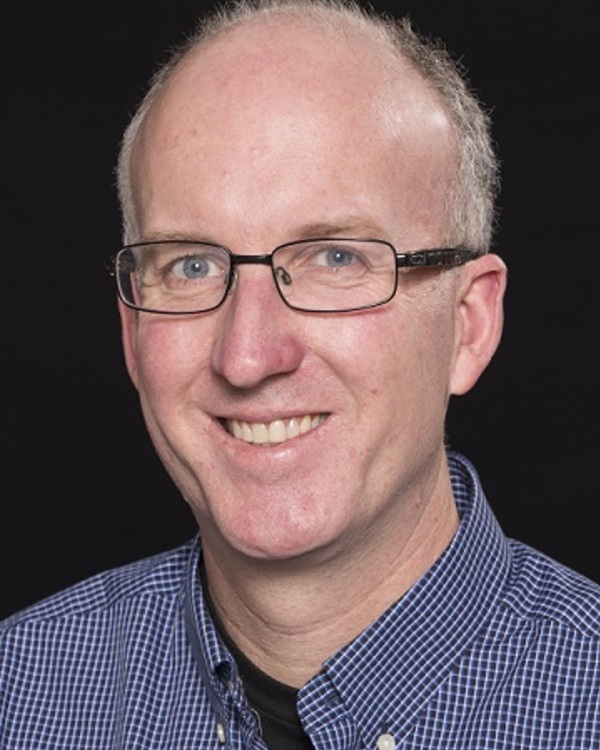
January 28
Michael Rea
Rev. John A. O’Brien Professor of Philosophy and Director of the Center for Philosophy of Religion at University of Notre Dame
“Divine Hiddenness and Divine Love”
Divine hiddenness—the unexpected ambiguity of our evidence for God’s existence, the elusiveness of God’s comforting presence when we are afraid and in pain, the palpable and devastating experience of divine absence and abandonment—is hard to reconcile with the idea, central to the Jewish and Christian scriptures, that God is deeply lovingly concerned with the lives and emotional and spiritual well-being of human creatures. The philosophical problem of divine hiddenness, one of the two most important arguments against the existence of God, depends on the idea that divine love is an idealized version of the best form of human love. In this talk I argue against this idea, and I show that the hiddenness problem can get no rational purchase on us by way of philosophical reflection on our ordinary understanding of the nature of love.
Michael Rea is Rev. John A. O’Brien Professor of Philosophy and Director of the Center for Philosophy of Religion at the University of Notre Dame, where he has taught since 2001. He is also a Professorial Fellow at the Logos Institute for Analytic & Exegetical Theology at the University of St. Andrews. His research focuses primarily on topics in metaphysics, philosophy of religion and analytic theology. He has written or edited more than fifteen books and nearly fifty articles, and has given numerous lectures in the United States, United Kingdom, European Union, Russia, China and Iran, including the 2017 Gifford Lectures at the University of St. Andrews.

February 11
Eleanore Stump
Professor of Philosophy, Saint Louis University, Missouri
“Suffering and Flourishing”
Even when we praise a person who suffers for not sinking under his suffering, we suppose that the sufferer is to be ranked more among life’s losers than among life’s winners. From the Patristic period onward, however, the Christian tradition has held that those who endure serious suffering are not the pitiable losers of life or even the heroic overcomers of tragedy but rather are those specially loved by God. Clearly, there is something right about the contemporary unreflective rejection of suffering as bad. Someone who valued suffering as an intrinsic good would be perverse at best and mentally disturbed or evil at worst. But I want to look closely at the relevant Christian doctrines to see what can be said to explain and defend the attitude towards suffering found in the Christian tradition that sees suffering as part of flourishing.
Eleonore Stump is the Robert J. Henle Professor of Philosophy at Saint Louis University. She is also Honorary Professor at Wuhan University and at the Logos Institute, St. Andrews, and a Professorial Fellow at Australian Catholic University. She has published extensively in philosophy of religion, contemporary metaphysics, and medieval philosophy. Her books include Aquinas (2003), Wandering in Darkness: Narrative and the Problem of Suffering (2010), and Atonement (2018). She has given the Gifford lectures at Aberdeen (2003), the Wilde lectures at Oxford (2006), the Stewart lectures at Princeton (2009),and the Stanton lectures at Cambridge (2018). She is past president of the Society of Christian Philosophers, the American Catholic Philosophical Association, and the American Philosophical Association, Central Division, and she is a member of the American Academy of Arts and Sciences.
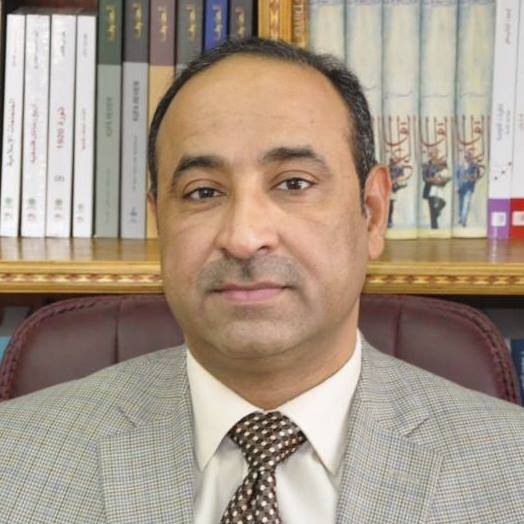
February 18
Hassan Nadhem
Holder of UNESCO Chair for Interreligious Dialogue Studies at the University of Kufa, Editor-in-Chief of Kufa Review and Founding Director of the Intellectual Studies book series
“The Power of Dialogue in Encountering the Sectarian Violence in Iraq”
Dr. Hassan Nadhem is a university professor (University of Kufa—Iraq), writer, and translator. He is the holder of UNESCO Chair for Interreligious Dialogue Studies at the University of Kufa, the editor-in-chief of Kufa Review and founding director of Intellectual Studies (series of books published by the University of Kufa). He has taught in many institutions and universities across the Arab world and the West: he is an at-distance lecturer and supervisor of the course on Quranic and Hadith sciences ICAS at Middlesex University in London.
Dr. Nadhem has published 20 authored and translated books, six chapters in books, 10 peer-reviewed articles, one encyclopedia entry, over five book reviews, presented paper in 10 conferences, and published several pieces in various newspapers and magazines. His current teaching and research activities mainly involve modern Arabic language and literature, inter-cultural studies, hermeneutics and critical theory.
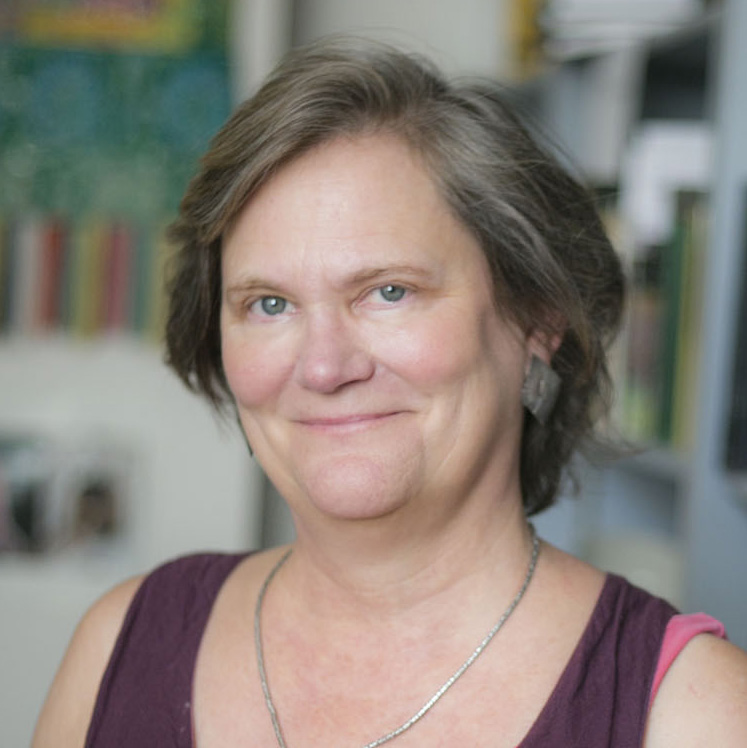
March 3
Wendy Farley
Rice Family Chair of Spirituality, San Francisco Theological Seminary and Graduate School of Theology, University of Redlands
“Embracing the Bright-Dark Abyss: Divine Ineffability as a Call to Radical Compassion and Social Justice”
Ideas about the divine are often drawn from human fathers, kings, and empires. Both suffering and apophatic theology reveal the inadequacy of these ideas. In dialogue with Christian contemplatives we will consider how the hiddenness of the divine qualifies our ideas about God and opens our hearts to the tragedy and beauty of the world. We will explore how this emphasis on divine ineffability can conspire with the wisdom of civil rights mothers and Jewish theologians to evoke radical compassion and with it, a call to social justice.
Wendy Farley is currently the Rice Family Chair of Spirituality at Redlands Graduate School of Theology.She is emerita from Emory University. Originally trained in philosophical theology and phenomenology, she has studied comparative and contemplative theologies. She also brings feminist and queer-studies perspectives to her work. She is the author of six books and an edited volume as well as over 65 peer-reviewed articles and invited or named lectures. She is a Fellow of the Mind and Life Institute and on the Board of Directors of Courage of Care. She also leads contemplative retreats on the west coast and in the southeast. She is interested in ways contemplative practices can contribute to resilience and compassion as we face current crises, including the deadly effects of climate change.
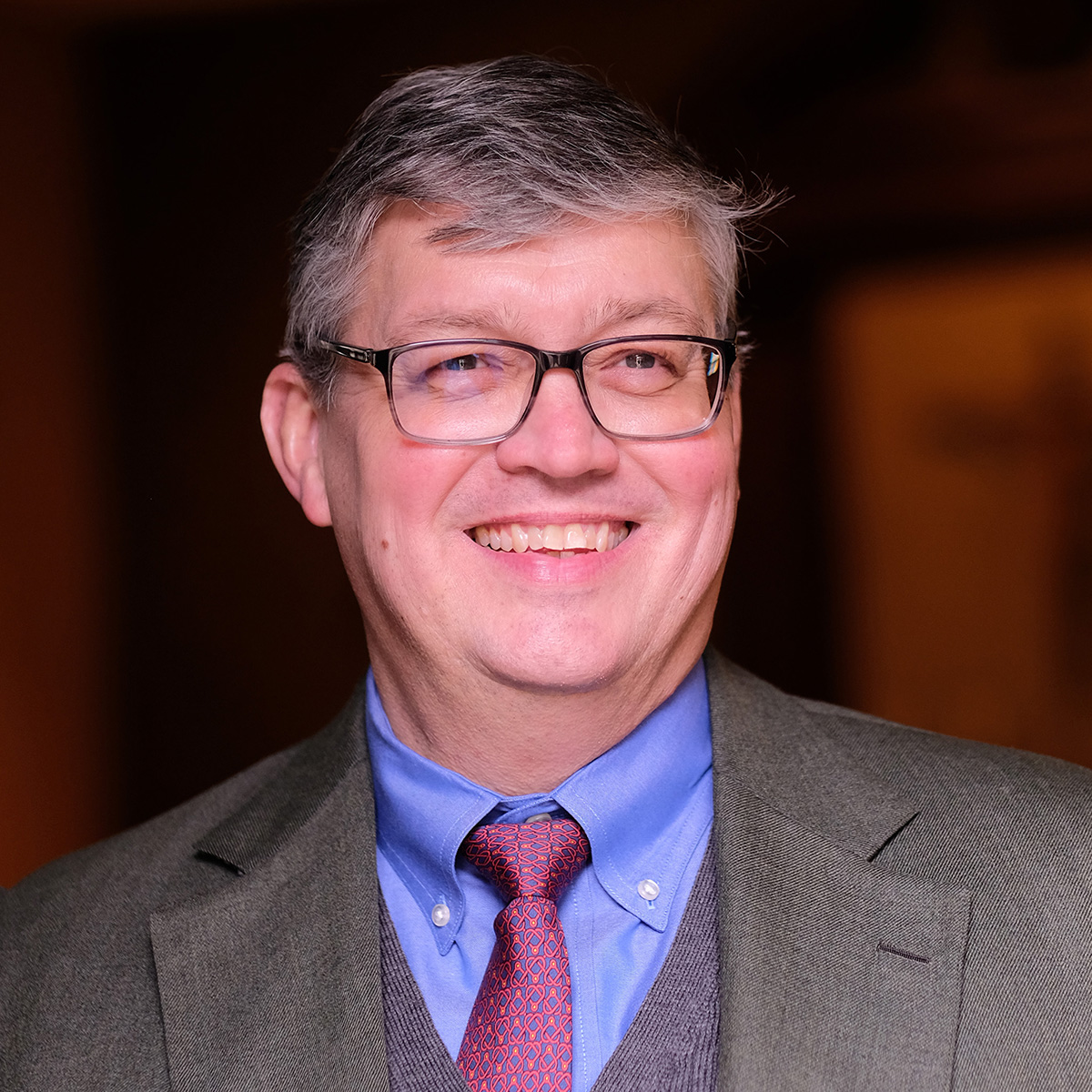
CANCELED – March 31
Founders Room, McConnell Center
Jon McGinnis
Professor of Classical and Medieval Philosophy Chair, Department of Philosophy, University of Missouri, St. Louis
“The Hiddenness of ‘Divine Hiddenness’: Divine Love in Some Medieval Muslim and Jewish Thinkers”
The issue of divine hiddenness has come to the forefront of philosophy of religion as one of the more pressing arguments against theism. The central idea of the argument is that the notion of an all-loving God is incompatible with the simple fact that some people, through no fault of their own, never experience God—God is hidden from them. In this talk,I look at certain presuppositions hidden within the argument itself. Particularly I consider how the concept of divine love and especially God’s desire for a personal relationship with us work in the argument. Those who defend the argument from divine hiddenness either provide little explanation of what divine love is or simply assume that it is obvious what it is. Yet, as I hope to show, historically there have been good even devout theists within both Judaism and Islam who would have questioned many of the argument’s assumptions about divine love. I focus on the medieval Muslim philosopher and scientist, Avicenna, and the Jewish philosopher and theologian, Moses Maimonides, and what these two thinkers have to say about divine love and God’s seeking a personal relation with us.
Jon McGinnis is professor of classical and medieval philosophy at the University of Missouri, St. Louis. He is a leading expert in the history of natural philosophy, with a focus on the medieval Arabic-speaking world. In addition to numerous articles, he is the author of Avicenna in the Oxford University Press’ Great Medieval Thinkers Series (2010), translator and editor of Avicenna’s Physics from his encyclopedic work, The Healing (Brigham Young University Press, 2009) and co-translator with David C. Reisman of Classical Arabic Philosophy, An Anthology of Sources (Hackett Publishing
Co., 2007). He has been awarded three National Endowment for the Humanities awards, a Mellon grant, a John Templeton Foundation grant and has been a member of the Institute for Advanced Study, Princeton. He is currently a UM Presidential Engagement Scholar.
CANCELED – April 7
Film Screening: Silence (2016) 161 minutes
Directed by Martin Scorsese
“The silence of God—or the deafness of man—is the theme of Martin Scorsese’s epic film about an ordeal of belief and the mysterious, ambiguous heroism involved in humiliation and collaboration. It is about an apparent sacrifice in the service of the greater good, and a reckoning deferred to some unknowable future time. The possibility of reaching some kind of accommodation with the enemy, and not knowing if this is a disavowal of pride or a concession to the greatest sin of all.” (The Guardian)
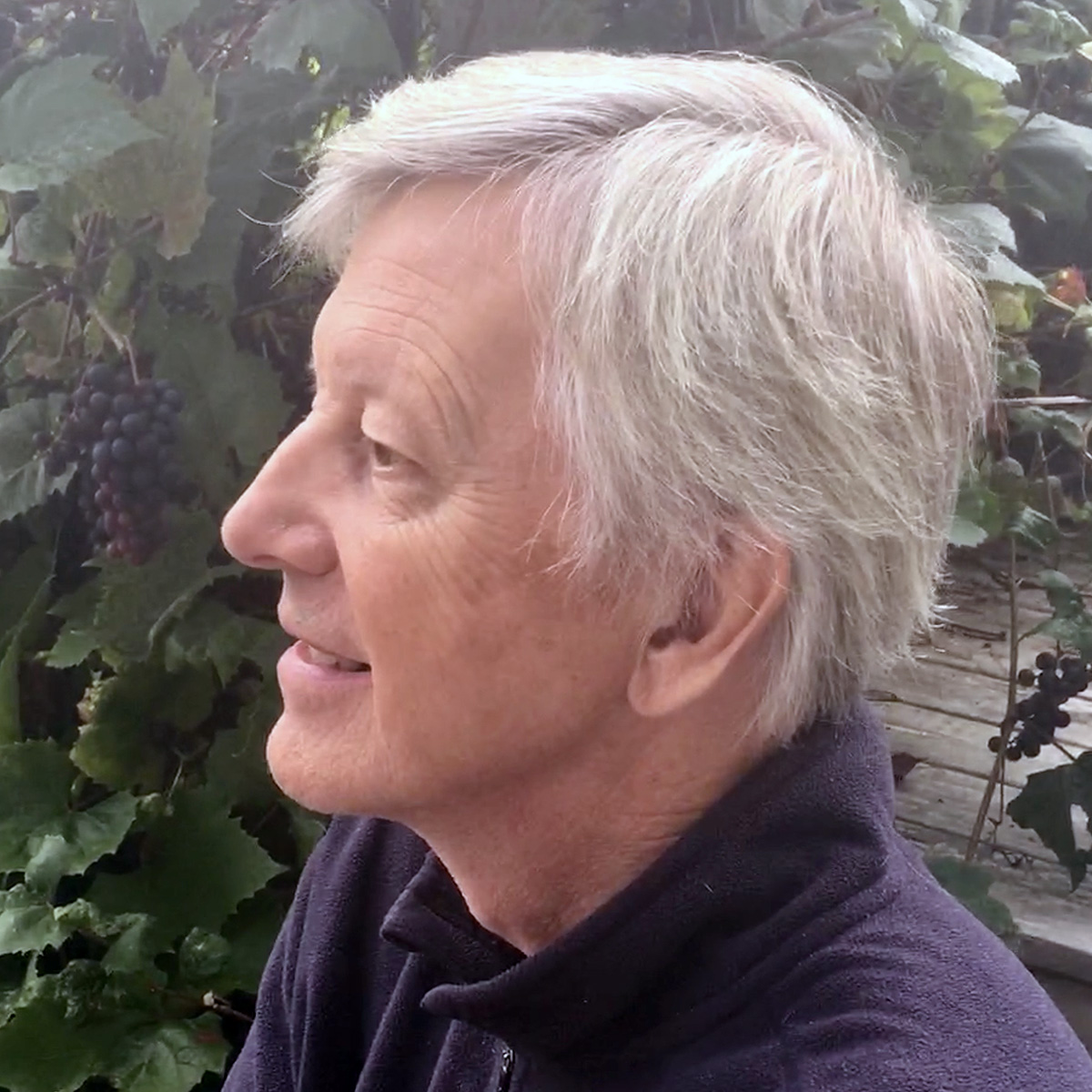
CANCELED – April 21
John Schellenberg
Professor of Philosophy, Mount Saint Vincent University
“Progressive Social Values and the Divine Hiddenness Debate”
In contemporary philosophy “divine hiddenness” is primarily associated with an argument for the nonexistence of a personal God. This argument – the hiddenness argument – suggests that a common way of being undecided about the God issue itself decides the issue. Since God would be supremely loving and thus open to personal relationship with beings like us, and because such relationship presupposes belief in God, many more of us would believe in God,if there were a God. This talk will seek to elucidate the hiddenness argument more fully. But its main aim is to explore how the interest the argument has provoked can be linked to changes in our social and moral life. The openness to relationship emphasized by the argument is something that in another time might have been shrugged off as optional, especially for males and fathers. And of course in earlier times it would have been easier to think of God as both Male and Father. But it isn’tbeing shrugged off now.Has recent cultural evolution, perhaps in various ways, had a role to play in producing an intellectual climate hospitable to hiddenness reasoning? What can we learn from this about making progress in the God debate?
Philosopher J. L. Schellenberg teaches at Mount Saint Vincent University and is Adjunct Professor in the Faculty of Graduate Studies at Dalhousie University. His first book, Divine Hiddenness and Human Reason (Cornell 1993),introduced the hiddenness argument, initating a long-running debate in philosophy that continues today. In 2015 Oxford University Press published a book by Dr. Schellenberg about this debate called The Hiddenness Argument: Philosophy’s New Challenge to Belief in God. In 2019, Bloomsbury published his book on the evolutionary context in which to view the hiddenness issue and related issues: Progressive Atheism: How Moral Evolution Changes the God Debate.
Schellenberg’s work of the last 20 years is largely devoted to fundamental investigations in philosophy of religion. One result is a trilogy: Prolegomena to a Philosophy of Religion (Cornell 2005),The Wisdom to Doubt: A Justification of Religious Skepticism (Cornell 2007), and The Will to Imagine: A Justification of Skeptical Religion (Cornell 2009). His recent work from Oxford, Evolutionary Religion (2013) places the ideas of the trilogy into an evolutionary framework. Further implications of Schellenberg’s approach are set out in his 2019 book from Cambridge University Press: Religion After Science: The Cultural Consequences of Religious Immaturity.